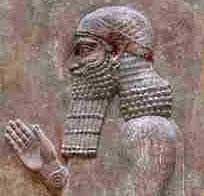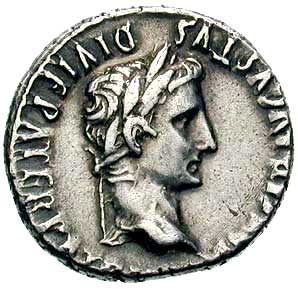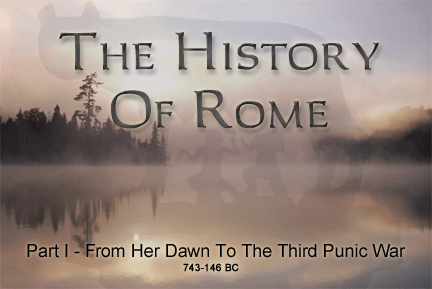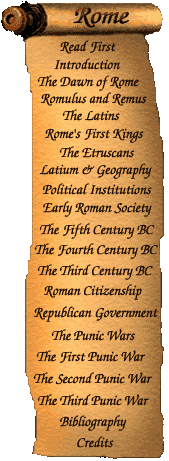– Food for the common people consisted of wheat or barley, olive oil. a little fish, wine, home grown vegetables, and few owned a goat or cow or chickens. The grain was ground into flour and baked into loaves of bread, much like the round Italian loaves today.

The History of Rome – Early Roman Society Facts
– There were three phases to a proper Roman education, primary instruction, reading of literature (called
or private tutor. The pedagogue was responsible for teaching the child basic reading ad writing skills and also prepared him for learning the important art of rhetoric, or public speaking.
The History of Rome- Part One. 743 – 136 B.C.
– The father in the traditional Roman home was a very stern figure, and believed his sons shouldnt be pampered but must build character. It was important that the young man develop
was the third name and usually was given later in life as a title of distinction, for example Gaius Julius Caesar, or might refer to some physical characteristic, for example Rufus meant red-haired. The cognomen might be handed down to a mans children, or it might not.
– Women carried, as their legal names, only the feminine form of their fathers nomen. For example, all the daughters of all the Julius family were legally named Julia. A woman might also use a form of her fathers cognomen and so be known as Julia Caesaria.

– Children always learned rigorous military discipline which included the arts of war, swordsmanship, hand to hand combat, and the way of life in an army camp. Basic training was very harsh and the boy learned quickly to endure cold and hunger in order to teach him to survive while in a war. This stern training was valued by all Romans.
– The first and last name of a Roman were similar to the way we use them today. The first two names, the
, a serious and sturdy sense of purpose.
– Education of children in the Roman world was done much differently from the way we educate our own children today. Though athletic training and sports were done in groups the essential learning skills were never done in groups like we do today. Much of the Roman education of children was adopted from the Greeks.
by the Romans) and formal schooling in rhetoric.
– It is almost always noticed that most Roman names end with the letters us, all the truly Roman praenomen and nomen ended in the letters us, even the ones often given different endings in modern translations.
– Still today in Italian culture the father, grandfather, or great grandfather has the greatest authority and respect. The eldest father, or patriarch is similar to a mafia Godfather.
taught the sons of craftsmen and merchants correct sentence structure and speaking form. He had the right to swat the child across the back with a stick if he made grammar mistakes. In early times the Grammaticus was not always highly respected in Roman society and during the Republican period, theSenatebanned all philosophers and grammaticii from Rome because they corrupted the minds of young Romans by teaching them to be lazy and overly clever.
– Round loaves have been popular amongst almost all Mediterranean people since ancient times. They were baked in round ceramic bowls, like the plaster casts of loaves found at Pompeii which was destroyed in the eruption of Mount Vesuvius in 79 AD.

Old Testament Overview- General survey of the Old Testament.New Testament Overview- General survey of the New Testament.A Harmony of the Life of Jesus- Four gospel accounts in harmony.Original Bible History Online- Visit the original site 1999-2016.

– A slave freed by his master adopted the masters first two names and added his own slave name as cognomen. For example, Marcus Tullius Tiro was the freed slave secretary of Marcus Tullius Cicero.
Also seeRoman Emperors- Photos, information , coins and more to come.
– The little amount of comfort and physical love the child was allowed came from his mother or his nurse, who might be either male or female. This nurse often remained the boys loyal servant even after he had grown up.

– The father of the Roman family had the power over everyone and everything in the home. He could sell his wife or children into slavery and order their deaths at will. He could extend this power to his slaves and tenant farmers as well.
, were much like first and last names in our time. The nomen was the family name, passed from a father to all of his children. Just like today, certain family names carried more prestige than others. A boy was given a praenomen name at birth and was known by it to his family and close friends. Many boys were given exactly the same praenomen and nomen.
– A son of a rich merchant of the Equestrian class would receive an education that included personal training in business management. A noblewomans education would prepare her for administration of a large estate and hundreds of slaves during her husbands absence. The sons of craftsmen would be apprentices, either in their fathers shop or in the shop of another local craftsman of the same trade.
Roman Empire Map- Large Map of the Roman Empire in the Early First Century – Click around on thePlaces.The History of Rome- Brief Overview Of Roman History from Her Dawn to the First Punic War.The Tabernacle of Ancient Israel- Brief Overview of the Tabernacle of Moses in the Wilderness and the Ark of the Covenant.The Babylonians- Learn about ancient Babylon and the people who lived there.
Biblical Archaeology- Significant Discoveries from Ancient Empires.Ancient Jerusalem- Interactive Study of Jerusalem with Map.Picture Study Bible- StudyBible with Pictures and Maps.First Century Israel Map- Large Map of Israel in the First Century – Click around on theCities.Illustrated Bible History- Illustrations, photos, and images of the ancient world of the Bible.
– Great universities also existed in the Mediterranean world. The best were at Athens and alexandria, and also Rome herself, although Rome had the best schools for the practice of law and government. In Athens, a student could get a classical education studying Greek dramas, poetry, logic, mathematics, or philosopy (science, mathematics, and other branches of knowledge).
– Roman soldiers carried their grain (high gluten wheat) and flour grindstones with them on the march. At night, after their 20 mile daily march they would have pasta and baked bread. They preferred this even over meat. When they did eat meat they considered it to be barbarian food.